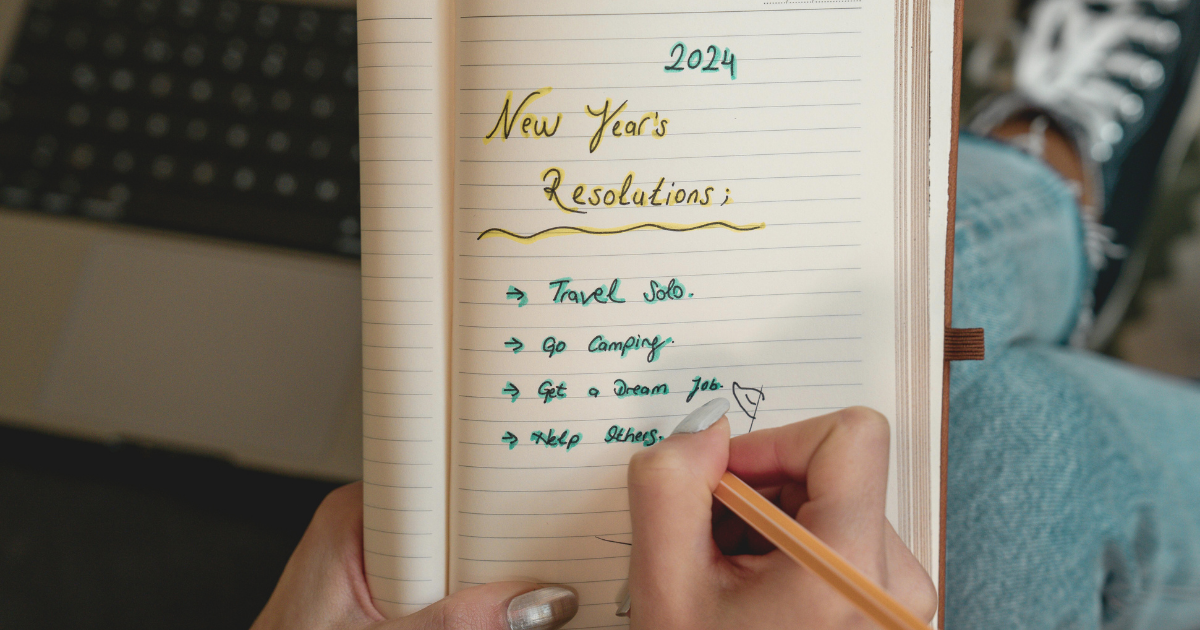Fearless Feasts: Recovery Support for Holiday Meals
Surviving holiday meals in recovery is one thing. But what about thriving?
With the holiday season in full swing, anticipation for gatherings with friends and family isn't always positive. For folks in recovery from eating disorders and disordered eating, even just thinking about the upcoming holiday meals can evoke fear, panic, and dread. Add in being a Highly Sensitive Person, and you might just want to dip out on the events altogether. I get it.
If this is you, I encourage you to take a pause and reflect on how you might prioritize your recovery and your sensitive needs during this often stressful time.
Lapses and relapses, as well as overstimulation and overwhelm, are common during this time of year. But it IS possible to stay grounded and not only survive holiday meals but thrive through them. And I've got 7 unique tips to help you do just that.
1. Set Your Intentions
Ideally, how would you want to feel during and after a holiday meal? We often ruminate on what we don't want to happen, but thinking about and visualizing what we DO want is a powerful step in creating it for ourselves.'
Your eating disorder values certain things - maybe control, restraint, or release. But what are YOUR values? What do you want to be more important to you than what's on your plate? Quality time with loved ones? Giving to those in need? Gratitude for all you have? Use your values and desires to set positive intentions for the day - and let your mind hang out there instead.
2. Frame the Meal as Just a Meal
Many people (in recovery or not) have a tendency to view holiday meals as an Olympic event. There's intentional restricting leading up to the meal, and then overdoing it to the point of discomfort or pain. This is not only a bad idea, but it is also understandably triggering for people healing from disordered eating. You can't control how, what, or when anybody else eats, but for you, frame this meal in your mind as just one meal.
Feed yourself adequately and consistently both before and after a holiday meal. Sometimes they are scheduled at an odd time, so think about how you might utilize snacks or switch the timing of a meal and snack to make sure you aren't going into the meal overly hungry.
If your scarcity mindset is triggered by the knowledge that certain types of food are only going to be available NOW, reality-check that. Isn't it true that you could decide to make that Sweet Potato Casserole recipe in January?
3. Recruit a Buddy
Beforehand, connect with one safe person who will be at your gathering or can be readily available for text check-ins throughout the day. This trusted person will serve as your recovery ally. Maybe they can help redirect triggering conversations or simply provide you with a grounding presence. If they are with you at the meal, agree on a subtle signal you can use to ask for support.
It's important to decide together what will be helpful and what will not be. If choosing a buddy who is also in recovery, it's important to discuss how you might support each other without the pressure of doing it perfectly or denying one of your needs to protect the other.
4. Bring a Comfort Kit
Pack and bring a small comfort kit with you to your holiday gathering that includes grounding or sensory essentials you might use at home. Some ideas include a stress ball or fidget toy, a calming essential oil roll-on, noise-canceling earbuds, a memento that reminds you of why you want to recover, and a small journal to jot down your feelings.
When you notice you're beginning to feel overstimulated, grab your kit and head to a safe space where you can utilize your tools in peace -- which leads me to number 5...
5. Identify Your Safe Space
Once you know where your gathering will be held (particularly if it's not at your own home), decide in advance where you might take a little time for regrouping or sensory rest. Maybe you could ask the host if there is a spare room they wouldn't mind you using. Is there a backyard or a balcony that could provide you with a breath of fresh air? If all else fails, find a bathroom (if possible, one farther away from the main gathering space) and lock the door.
You have the right to step away from any conversation, any room, and any meal - no explanations are needed. (Although a brief, "Please excuse me. I need a few minutes" can be helpful.")
6. Design a Post-Meal Ritual
After you finish eating, what would be a helpful way to relax and re-ground? Would a brief walk around the block feel nice? Or stepping away to leave a voicemail on your best friend's phone? Once you know what you'd like to do, share it with your recovery buddy. They can help remind you to engage in your ritual.
Be sure to think about what is going to be recovery-supporting at this time. For example, if you typically struggle with the urge to compensate after eating, maybe a walk is not the best idea, and standing outside taking deep breaths is a better fit.
And for the love of kitties of puppies, please make sure your post-meal ritual doesn't include a scale. I promise you that the number is meaningless.
7. Reflect Through a Positive Lens
When the gathering winds down, and for the remainder of your day or evening, direct your entirely normal reflections toward the positive. Due to our evolutionary needs, humans have what's called a negative bias, which means we typically reflect on negative things more than positive ones. But just because this is our tendency, it doesn't mean we can't shift out of it.
If you find that you're stressing about what or how much you ate, or whether or not you met your intentions for the day, gently nudge your thoughts toward what went well. Even if you can only identify something small, or just one or two things, keep going back to these wins. The more you focus on them, the better you will feel, and the more likely you are to add to these wins in the future.
💖 Happiest of holidays to you. You deserve to enjoy yourself.
Looking for more? You might like this post - Sensitive in ED Recovery: Mini Mealtime Tips.




